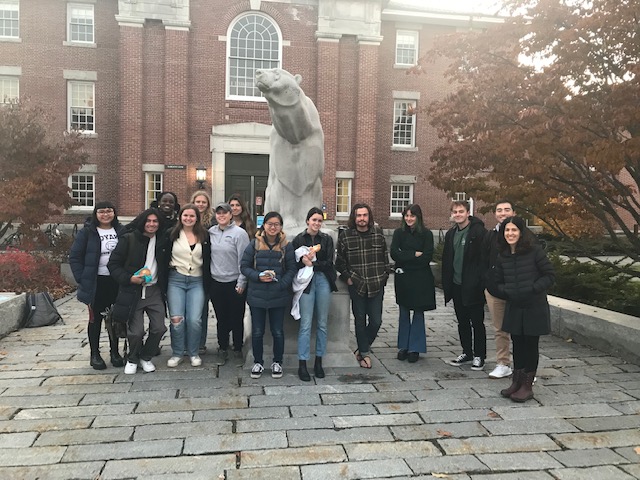
“In the prologue of the [first Spanish] dictionary, there's this extended metaphor about when you open the dictionary, it's like you're entering this cave,” Boyle said. “I’ve done a lot of thinking about the project of making that dictionary, and also all of the kinds of definitions that it contains, which are just fabulously poetic and kind of surprising and counter a lot of our modern ideas about what it means to create these collections.”
Both professors shared their curiosity about the future of the dictionary, as well as the evolution of national culture through vocabulary.
“You have Urban Dictionary and all this other pseudo-dictionaries that are actually as used as many of the real dictionaries are—a lot of people go to Urban Dictionary all the time,” said Stavans. “Urban Dictionary is a democratic dictionary: for the people, by the people. There will come a time when no one will have objects, because the dictionary is a web page.”
“[With an online dictionary,] you don't have to page through the actual volume; you don't need to worry about alphabetical order—and there's a kind of efficiency to that, and we can all appreciate it,” Boyle added. “But, then, we may be nostalgic for the object of the dictionary and what it means to hold it.”
No comments:
Post a Comment